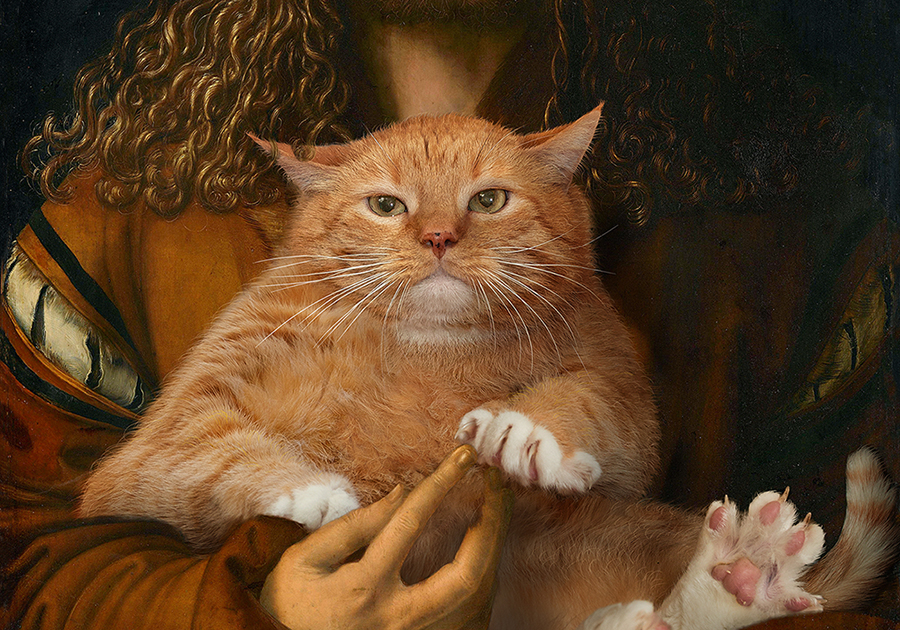Yes, cats can eat spiders as they are natural hunters and insectivores. Cats are known for their skillful hunting abilities and are fascinated by the movement and tiny size of spiders.
While most spiders are harmless to cats, it’s important to remember that certain species can be poisonous and harmful if ingested. Cats with a strong prey drive may be tempted to catch and eat spiders, but as a responsible pet owner, it’s crucial to monitor their behavior and prevent them from consuming potentially dangerous insects.
We will explore whether it is safe for cats to eat spiders, the potential risks associated with it, and what steps you can take to ensure the well-being of your feline friend.

Credit: www.thenewatlantis.com
The Fascinating Hunting Habits Of Cats
Cats exhibit fascinating hunting habits, and one of their preferred targets is spiders. Cats are natural predators, drawn to the allure of spiders as prey. These agile felines use their stealth and instinct to catch spiders, showcasing their innate hunting skills.
With their quick reflexes and sharp claws, cats pounce on spiders, capturing them with precision. Their keen senses and nimble movements enable them to navigate intricate webs and snatch spiders in a swift and calculated manner. However, it’s important for cat owners to be cautious, as certain spiders can be venomous.
While cats may find great amusement in chasing spiders, it’s advisable to carefully monitor their interactions to ensure their safety. So, can cats eat spiders? While some cats may indulge in an occasional spider snack, it’s generally best to discourage this behavior and provide them with a balanced diet suited for their nutritional needs.
Are Spiders Safe For Cats To Consume?
While cats are known for being skilled hunters, it’s important to consider the safety of their prey. Spider consumption can pose potential risks for cats. The toxicity levels in different spider species vary greatly. Some spiders, like the black widow or brown recluse, can be highly poisonous to cats if bitten.
It is crucial to keep an eye on your feline friend and ensure they don’t come into contact with dangerous spiders. While most spider bites won’t have severe effects on cats, it’s still best to discourage the consumption of spiders altogether.
If you notice any unusual behavior or suspect your cat has been bitten, consult your veterinarian immediately. Remember, prevention is better than cure, and keeping your cat away from spiders can help ensure their safety.
The Effect Of Spiders On Feline Digestion
Spiders can be consumed by cats, though the ease of digestion is a concern. While felines possess strong digestive systems, spider consumption can lead to potential health implications. It is essential to consider the size and type of spider consumed.
Some spiders may contain toxins or allergens that can adversely affect a cat’s digestive system. Furthermore, the digestibility of spiders can vary depending on their exoskeleton structure. Cats may struggle to break down the tough outer layer, leading to potential discomfort or digestive issues.
If a cat ingests a spider, it is advisable to monitor them closely for any adverse symptoms and consult a veterinarian if necessary. Providing a balanced diet that fulfills a cat’s nutritional requirements is crucial to their overall well-being.
Tips For Preventing Cat-Spider Interactions
Cats and spiders can be a worrisome combination for many pet owners. To prevent unwanted interactions, it’s essential to minimize spider access in your home. You can achieve this by taking certain measures such as sealing cracks and crevices, decluttering areas where spiders may hide, and regularly cleaning your home to remove spider webs.
Additionally, you can also use natural deterrents like peppermint oil or citrus-scented sprays to discourage spiders from entering your living spaces. These methods will help create an environment that is less appealing to spiders and decrease the chances of your cat coming into contact with them.
When it comes to ensuring the safety of your feline friend, it’s important to take proactive steps in preventing cat-spider interactions. So, always stay vigilant and implement these preventive measures to keep both your cat and your home spider-free.
Alternatives To Spider Hunting For Cat Entertainment
Engaging toys and activities can provide a safe way for indoor cats to satisfy their natural hunting behaviors. These alternatives to spider hunting not only keep your feline companion entertained but also ensure their well-being. Interactive toys that simulate the movements of spiders or other small prey can be a great option.
Feathers, strings, and laser pointers can also captivate your cat’s attention and trigger their hunting instincts. Puzzle toys and treat dispensers can provide mental stimulation while rewarding their efforts. Additionally, creating hiding spots and providing scratching posts can enhance their environmental enrichment.
Remember to rotate and introduce new toys regularly to prevent boredom. By offering these engaging options, you can redirect your cat’s hunting instincts towards activities that won’t harm them or the spiders.
Conclusion
It is important to be cautious about allowing cats to eat spiders. While spiders are generally not toxic to cats, some species can bite and cause harm. Additionally, certain spiders may have been exposed to pesticides or other chemicals that could be harmful if ingested by your feline friend.
It is recommended to keep your home spider-free by using spider deterrents or contacting a professional pest control service. If you notice your cat showing signs of illness after consuming a spider, such as vomiting or diarrhea, it is best to consult with a veterinarian.
Providing a balanced diet and engaging your cat in play and exercise can help prevent them from hunting spiders in the first place. Remember to prioritize your cat’s health and well-being by keeping a close eye on their interactions with spiders and other insects.
